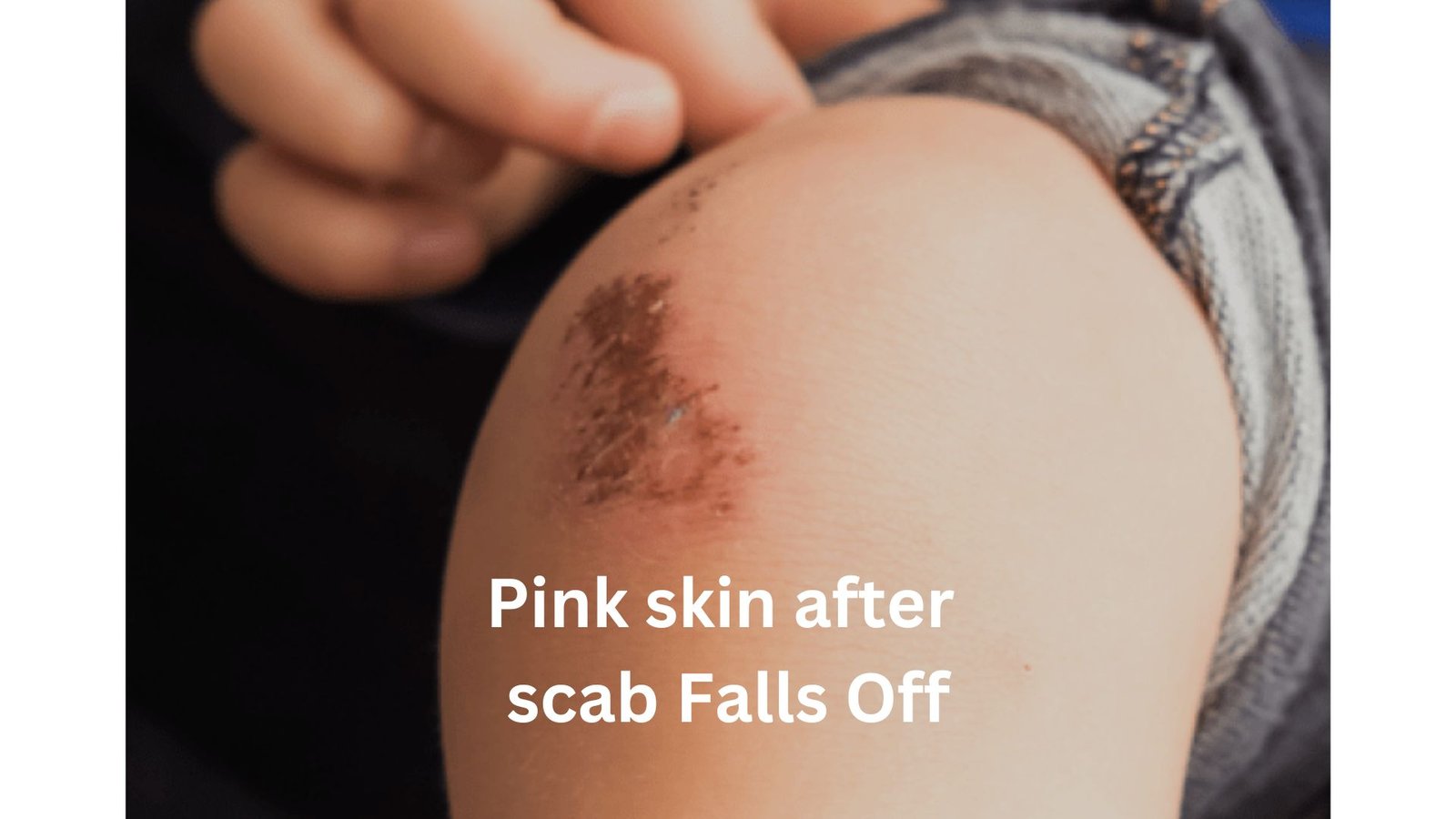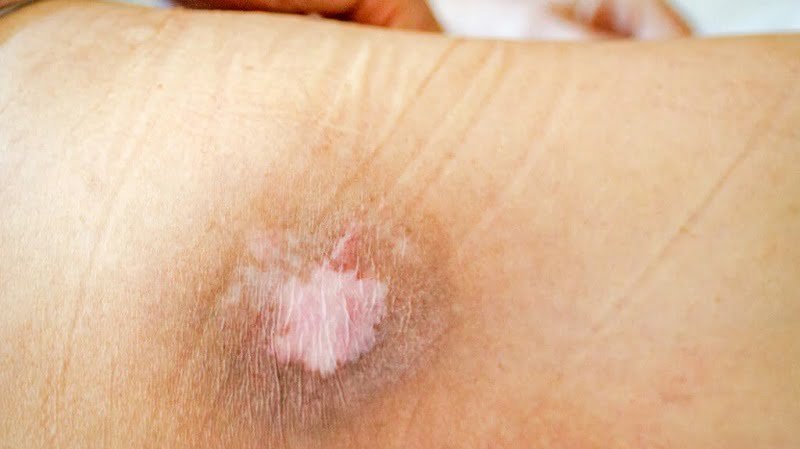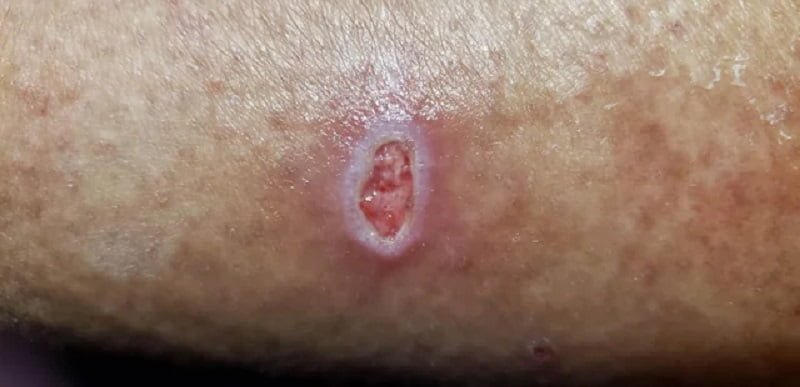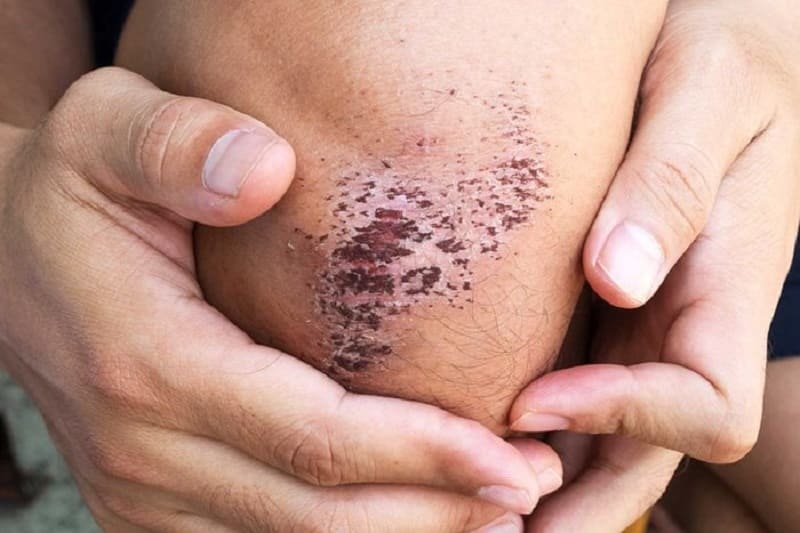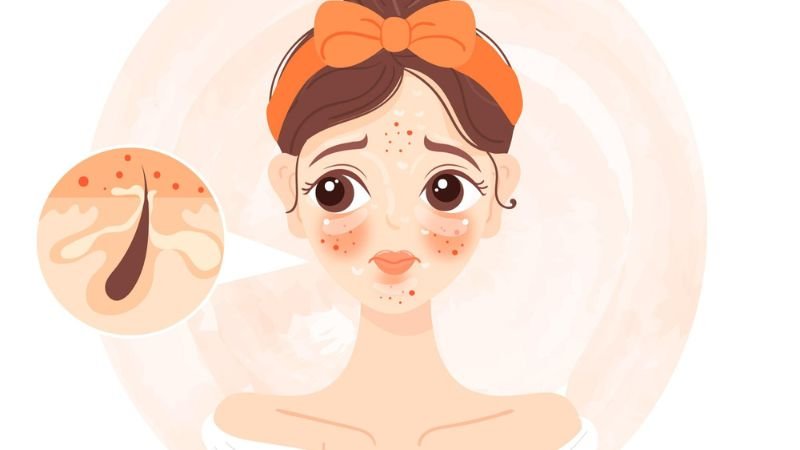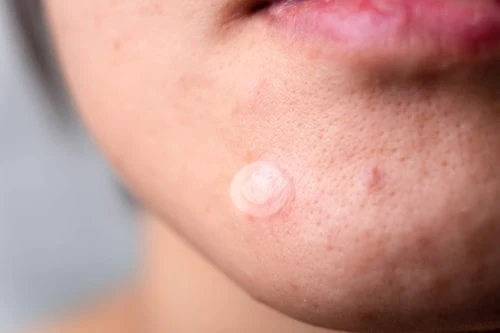Introduction :
Wound healing is a complex and intricate process orchestrated by our body’s natural defense mechanisms. When injuries occur, the formation of a scab is a crucial step in safeguarding the wound and facilitating the healing journey. However, have you ever found yourself wondering, “Why is my scab so thick?” In this blog, we will delve into the factors contributing to the thickness of scabs, exploring the science behind this natural protective layer.
Understanding the Scab Formation Process:
Before we unravel the mystery of thick scabs, it’s essential to understand the basics of scab formation. When the skin is injured, platelets and clotting factors work together to form a protective barrier over the wound. This initial clot eventually dries out and hardens, creating what we commonly know as a scab. Scabs Heals the Wound and protect it. The scab shields the underlying tissue from external elements, preventing infection and providing a platform for the healing process to unfold.
Factors Contributing to Thick Scabs:
Wound Size and Depth:
The size and depth of a wound play a significant role in determining the thickness of the resulting scab. Larger or deeper wounds often require more extensive healing, leading to the formation of a thicker scab.
Rate of Healing:
The speed at which your wound heals can influence scab thickness. Rapid healing may result in a thinner scab, while a slower healing process might contribute to the development of a thicker, more substantial protective layer.
Infection Risk:
If a wound is at a higher risk of infection, the body may produce a thicker scab to create a more robust barrier against potential pathogens. This is the body’s way of prioritizing protection during the healing process.
Underlying Health Conditions:
Certain underlying health conditions, such as diabetes or compromised immune function, can impact the body’s ability to regulate the healing process. In such cases, scabs might tend to be thicker due to the body’s increased effort to combat potential complications.
Genetic Factors:
Genetics can also play a role in determining the thickness of scabs. Some individuals may naturally form thicker scabs due to inherited traits, influencing the body’s response to injury.
Managing Thick Scabs:
Stay Hydrated:
Adequate hydration supports overall skin health and can contribute to a more efficient healing process. Ensure you stay hydrated to promote optimal wound healing.
Proper Wound Care:
Practicing good wound care is crucial. Keep the wound clean, apply appropriate dressings, and follow healthcare professionals’ advice to promote a healthy healing environment.
Avoid Picking or Scratching:
Resist the urge to pick or scratch at your scab, as this can disrupt the healing process and potentially lead to scarring. Allow the scab to fall off naturally when the underlying tissue has adequately healed.
Conclusion:
The thickness of a scab is a dynamic aspect of the intricate dance our bodies perform during the wound healing process. Understanding the factors influencing scab thickness can provide insights into your body’s unique response to injury. Embrace proper wound care practices, stay patient, and allow your body the time it needs to heal naturally. If you have concerns about your scab or wound healing, consult with healthcare professionals for personalized guidance on your journey to recovery.
Faq Related to "Why is my scab so thick?"
The thickness of a scab can be influenced by various factors, including the size and depth of the wound, the rate of healing, the risk of infection, underlying health conditions, and even genetic factors.
Yes, larger or deeper wounds often result in thicker scabs. The body may produce a more substantial protective layer to facilitate the healing of extensive injuries.
Absolutely. Faster healing may lead to thinner scabs, while a slower healing process might contribute to the development of thicker scabs as the body takes its time to build a robust protective layer.
Yes, certain health conditions like diabetes or compromised immune function can impact the body’s ability to regulate the healing process, potentially leading to the formation of thicker scabs.
Yes, genetics can play a role. Some individuals may naturally form thicker scabs due to inherited traits that affect the body’s response to injury.
Proper wound care is essential. Keep the wound clean, apply appropriate dressings, stay hydrated, and avoid picking or scratching at the scab. Allow it to fall off naturally once the underlying tissue has sufficiently healed.
Yes, it can be normal for scabs to vary in thickness depending on individual factors and the nature of the wound. However, if you have concerns about your scab or healing process, consulting with healthcare professionals is recommended.
Yes, staying hydrated is crucial for overall skin health and can contribute to a more efficient healing process. Dehydration may affect the quality of the scab and the overall healing of the wound.
Not necessarily. Scab thickness can vary, and it’s often a natural part of the healing process. However, if you have concerns, experiencing pain, or notice signs of infection, consulting with healthcare professionals is advisable.
While you can promote optimal healing by practicing good wound care and staying healthy, the body’s healing process has its own timeline. Patience is key, and attempting to accelerate the process might not necessarily lead to thinner scabs. If in doubt, seek professional advice.




